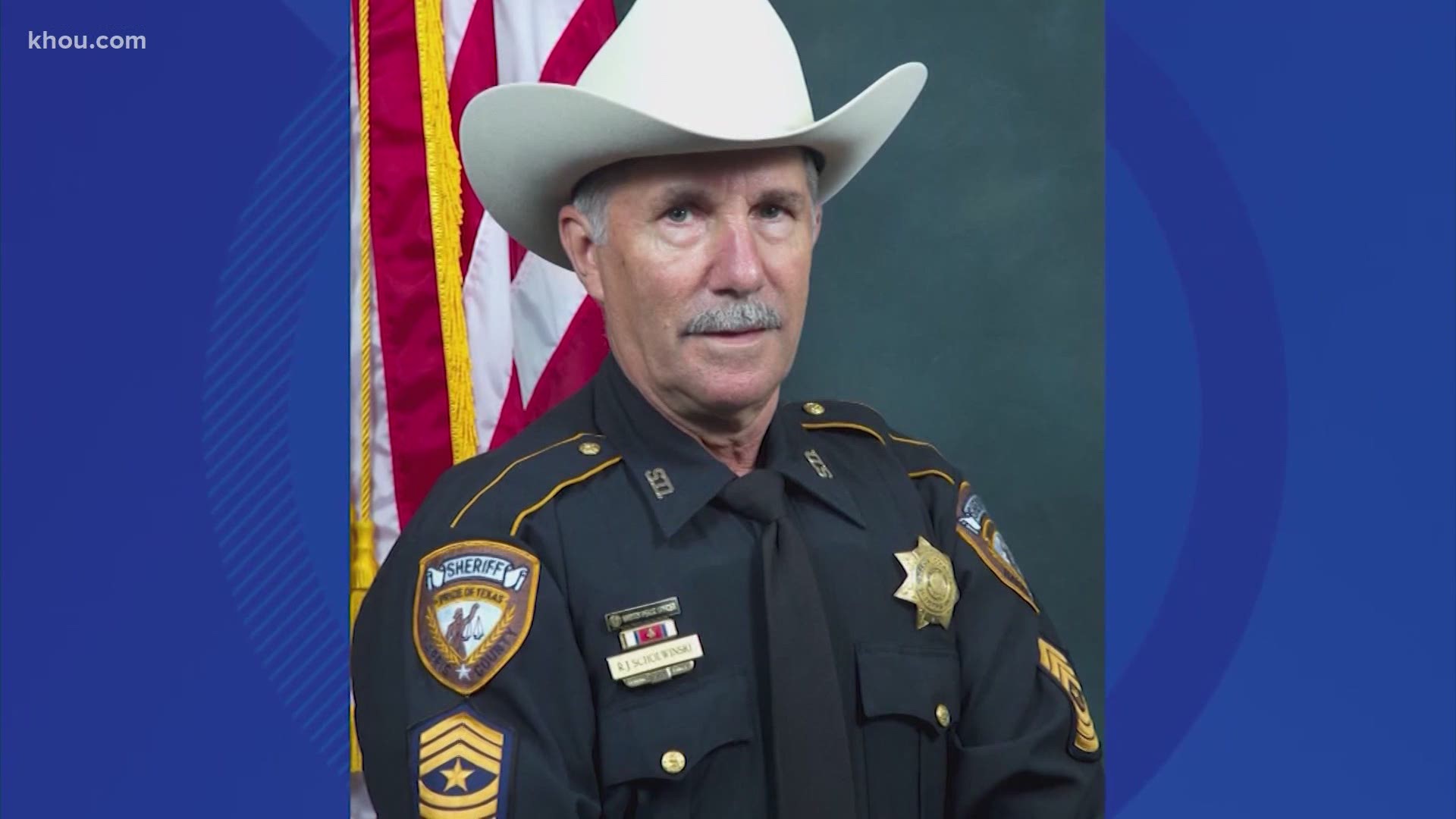HARRIS COUNTY, Texas — Harris County Sheriff’s deputy Sgt. Raymond Scholwinski died Wednesday after battling COVID-19. He was 70.
The Harris County Sheriff’s Office said Sgt. Scholwinski died Wednesday afternoon.
Sgt. Scholwinski started his HCSO career as a reserve deputy in 1979. He served with with distinction as a full-time officer for 26 years. Sgt. Scholwinski’s most recent assignment was as the day watch Contract Sergeant in District 2 where he served as the district representative in most public speaking engagements.
"Sgt. Scholwinski represented the best of the Harris County Sheriff's Office family," said Sheriff Ed Gonzalez. "Whether he was on patrol, making a neighborhood association presentation, or in the field during hurricanes, tropical storms, and other disasters, Ray consistently delivered for the people of Harris County. We will miss our brother and we will honor his legacy of service."
Sgt. Scholwinski and his wife both tested positive for coronavirus. She was able to recover at home, but he was admitted to the hospital on March 29.
Funeral arrangements for Sgt. Scholwinski are pending.
Coronavirus symptoms
The symptoms of coronavirus can be similar to the flu or a bad cold. Symptoms include a fever, cough and shortness of breath, according to the Centers for Disease Control. Some patients also have nausea, body aches, headaches and stomach issues. Losing your sense of taste and/or smell can also be an early warning sign.
Most healthy people will have mild symptoms. A study of more than 72,000 patients by the Centers for Disease Control in China showed 80 percent of the cases there were mild.
But infections can cause pneumonia, severe acute respiratory syndrome, kidney failure and even death, according to the World Health Organization. Older people with underlying health conditions are most at risk for becoming seriously ill. However, U.S. experts are seeing a significant number of younger people being hospitalized, including some in ICU.
The CDC believes symptoms may appear anywhere from two to 14 days after being exposed.
Human coronaviruses are usually spread through...
- The air by coughing or sneezing
- Close personal contact, such as touching or shaking hands
- Touching an object or surface with the virus on it, then touching your mouth, nose or eyes before washing your hands.
Help stop the spread of coronavirus
- Stay home when you are sick.
- Eat and sleep separately from your family members
- Use different utensils and dishes
- Cover your cough or sneeze with your arm, not your hand.
- If you use a tissue, throw it in the trash.
- Follow social distancing
Lower your risk
- Wash your hands often with soap and water for at least 20 seconds. If soap and water are not available, use an alcohol-based hand sanitizer.
- Avoid touching your eyes, nose, and mouth with unwashed hands.
- Avoid close contact with people who are sick.
- Clean and disinfect frequently touched objects and surfaces.
- If you are 60 or over and have an underlying health condition such as cardiovascular disease, diabetes or respiratory illnesses like asthma or COPD, the World Health Organization advises you to try to avoid crowds or places where you might interact with people who are sick.
Get complete coverage of the coronavirus by texting 'FACTS' to 713-526-1111.

